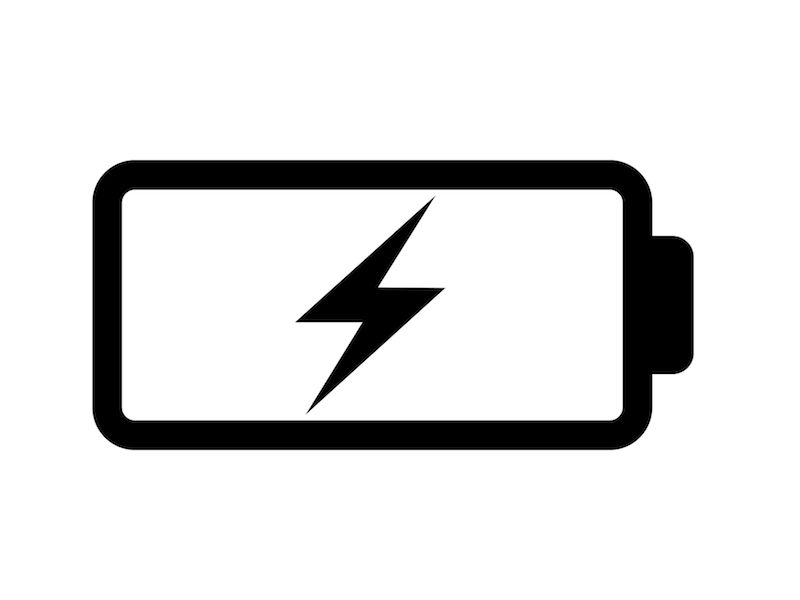
Rechargeable hearing aids are manufactured so that you’ll need to worry less about running low on batteries, but the technology may also make you a little anxious when you rely on your devices to hear. Do rechargeable hearing aids work, and do they work as well as marketed?
Those questions are reasonable, as is the accompanying anxiousness. A hearing aid is often as necessary for the enjoyment of a tv show or a movie as it is for a trip to the supermarket or any other part of everyday life. It’s important that a piece of technology functions correctly and dependably, especially when it impacts so many aspects of life.
What Kind of Battery do I Have?
By default, most modern-day hearing aids come with rechargeable batteries, so if you bought your hearing aids recently it’s likely that your hearing aids will have one of two battery types. Silver-zinc batteries, which can normally be distinguished by a battery door on the device, are rechargeable, but the batteries may need to be changed every now and then. A Lithium-ion battery, however, will last for the duration of the life-cycle of the hearing device and, as such, those devices will not have that telltale battery door.
How to Care For Your Rechargeable Hearing Aid
For the most part, rechargeable hearing aids do work, and they work well. The dependability of these devices has increased significantly in the last few years, as battery technologies have advanced. And, like any other electronic device, however, there are a few easy maintenance procedures that users can practice to increase the reliability of their rechargeable hearing aids.
- Keep Your Hearing Aids on The Charging Station: If your hearing aids have rechargeable batteries, you can increase the battery life of your device by ensuring that you regularly store your hearing aids on their charging station. Charging a battery that is not completely drained does not reduce long-term battery life. As a matter of fact, ensuring that your hearing aids are charging when you’re not using them can actually maximize your long-term battery life. For many people, placing their charging station next to their bed is a convenient reminder to charge the devices when not in use.
- Keep Your Hearing Aids Dry and Clean: No matter how often you use or do not use your hearing aids, they have abundant opportunity to accumulate moisture, debris, and dust. Any combination of these three things can undercut the capacity of your battery and can interfere with charging in sufficient quantities. When connecting your hearing aid to your charging station, as with any other time, it’s crucial to keep your device clean.
- Be Mindful of Wires: Most hearing aids will have a wire element of some kind, either on the charging station or on the hearing aids themselves. Being mindful of these wires is essential for hearing aid users; the connection that enables the device to charge can be damaged if you pull on or hold it by the wires.
How to Change a Rechargeable Battery
Lithium-ion batteries should last the lifespan of your device. As a result, you shouldn’t have to worry about changing those batteries. Your hearing aids can then be simply charged as long as needed.
Hearing aids that rely on silver-zinc batteries, however, might require new batteries occasionally. Changing batteries in the right way can help increase the lifespan of your hearing aids. Because of this, hearing professionals recommend the following:
- Before replacing batteries, be sure you wash your hands.
- Don’t eliminate any packaging or plastic tabs until you’re ready to use batteries.
- Make certain you have a dry, room temperature place to store your batteries.
- Ensure that your battery compartment is clean and free of moisture.
- Five minutes before removing any tabs that might be attached let the batteries sit at room temperature.
Non-Use For Long Periods
Keeping your hearing aids on the charger for extended periods of time is no longer the best way to store your hearing aids. If, for example, you know that you won’t be using your hearing aids for several weeks or months, you can just unplug the charger and store your hearing aids in a cool and dry spot.
Consider leaving the battery door open so you can stop moisture from corroding the batteries if you have silver-zinc batteries.
Keep it Charged Every Day
For most people, and for everyday use, charging your hearing aids once a day should be adequate for all of your requirements. To get 24 hours worth of battery life with a lithium-ion battery will usually only require 3-4 hours every day.
Do rechargeable hearing aids work? They don’t only work, they are becoming more common every day. Schedule an appointment with your local hearing aid retailer to see all the different models